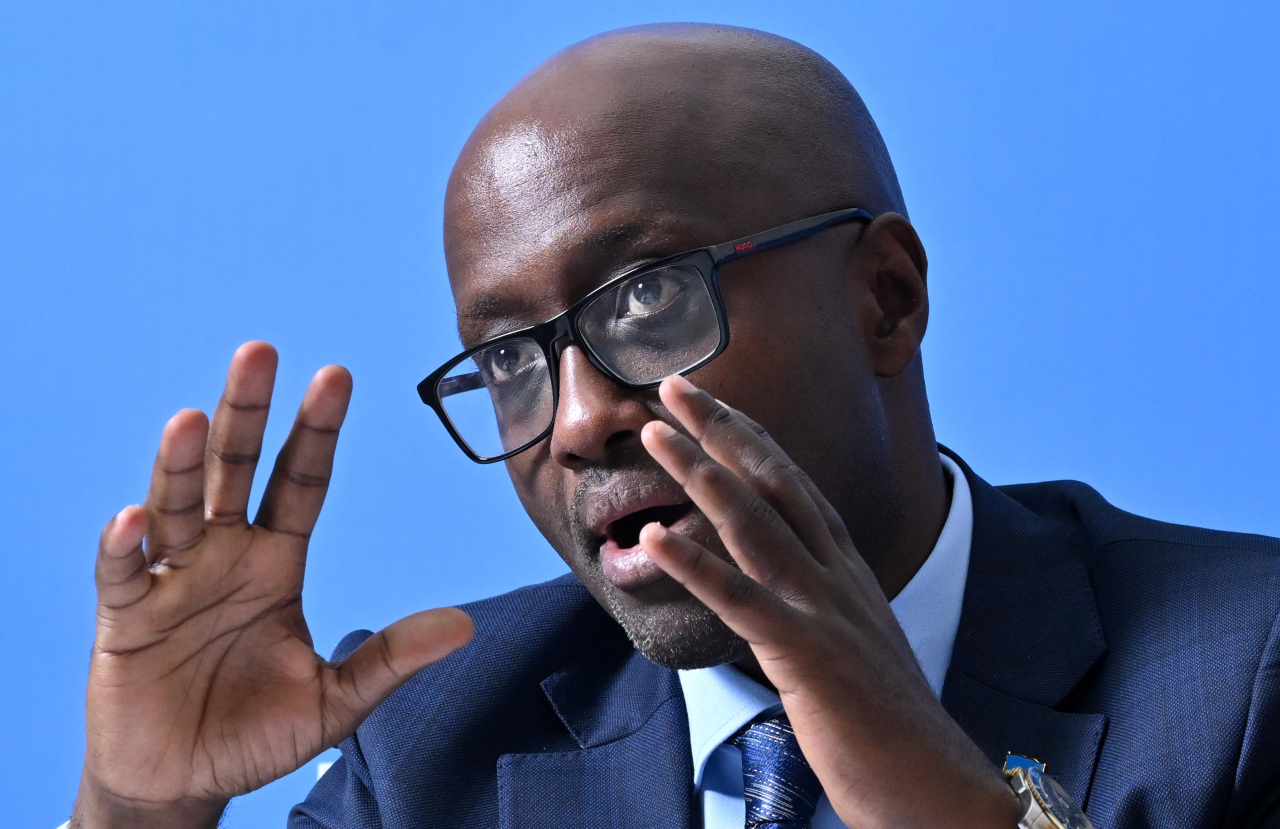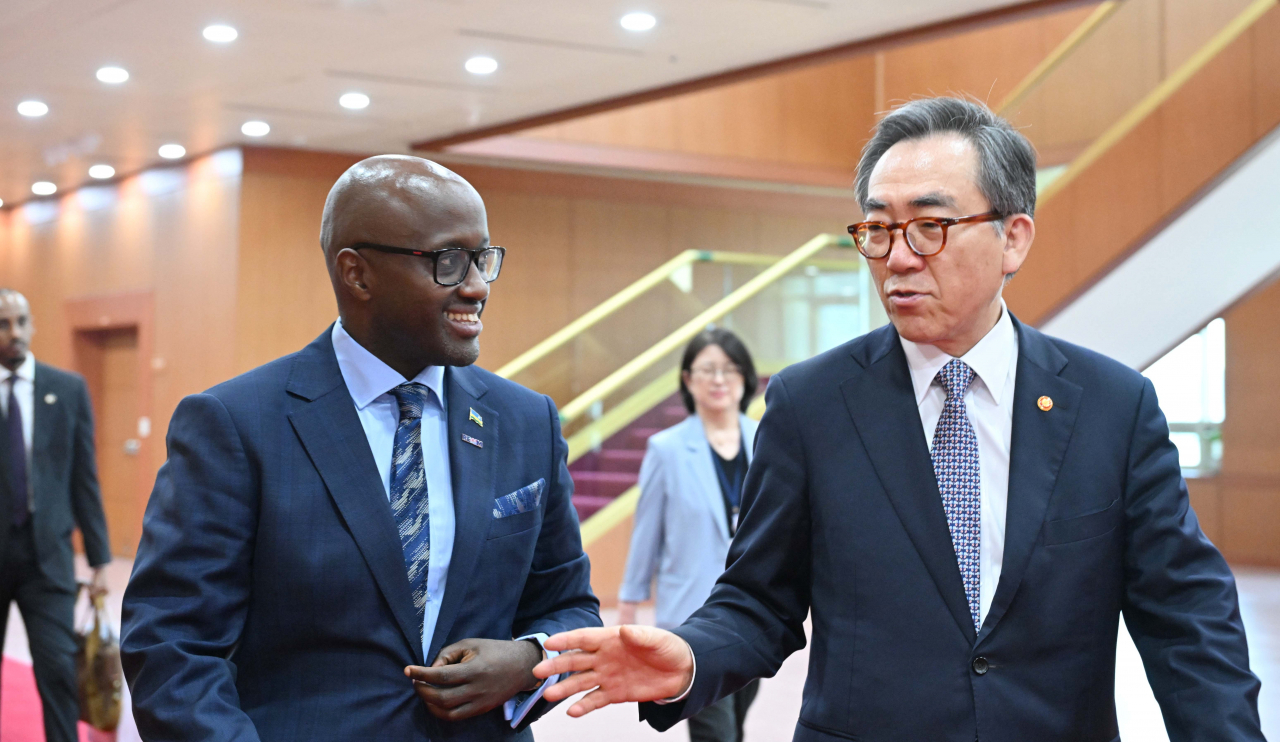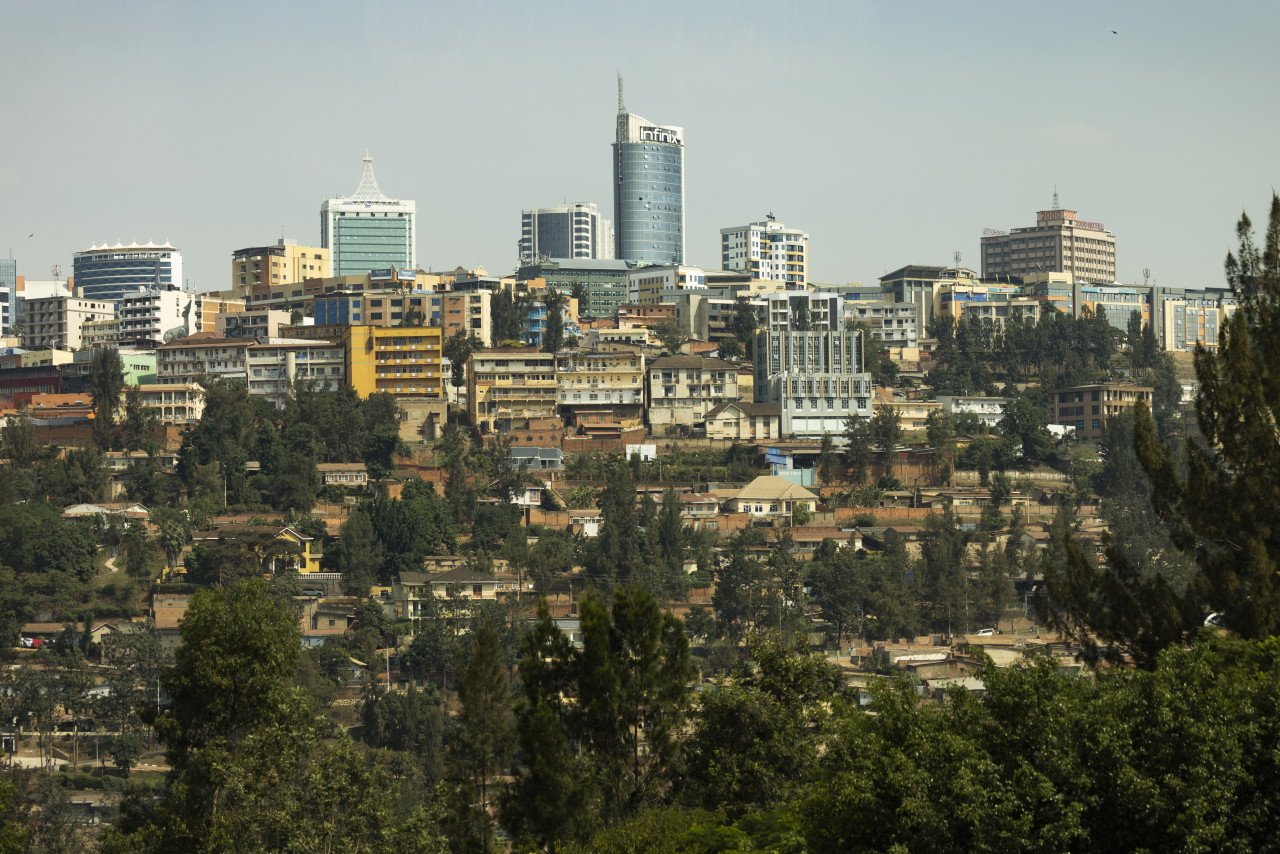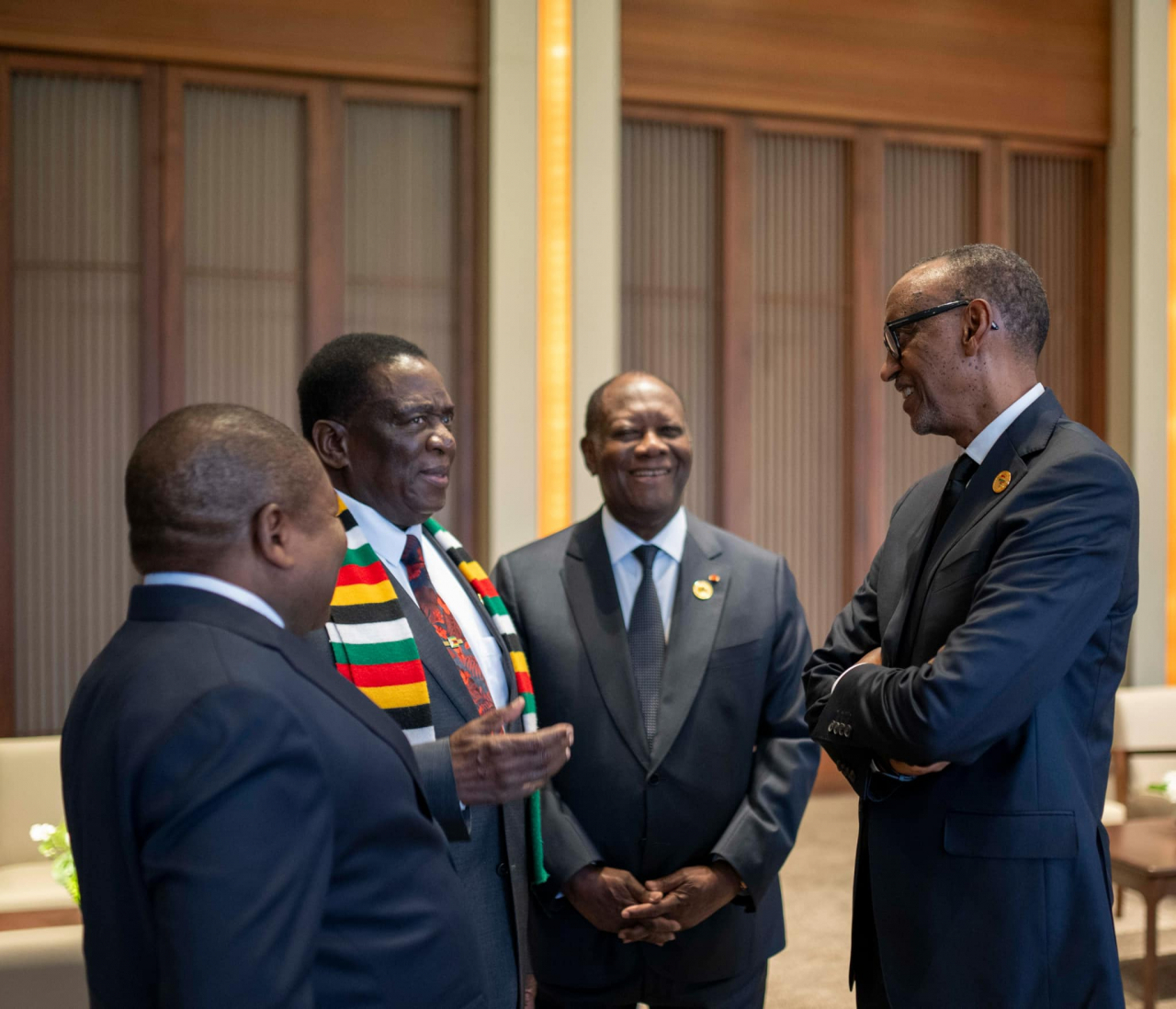 |
Rwandan Minister of Foreign Affairs and International Cooperation Olivier Nduhungirehe speaks during his interview with The Korea Herald on Sept. 9 at the Rwandan Embassy in Seoul. Im Se-jun/The Korea Herald |
Rwanda's top diplomat emphasized that building stronger partnerships with South Korea -- particularly in fostering human and technological capital and attracting more investment and Korean companies -- is key to accelerating the country's transition from aid dependency to a self-reliant, trade-driven economy focused on industrialization
In an interview with The Korea Herald, Rwandan Minister of Foreign Affairs and International Cooperation Olivier Nduhungirehe shed light on the significance of Rwanda's cooperation with South Korea, particularly noting that "Rwanda has also been on a path for socioeconomic transformation," driven by a state-led initiative.
Central to the transformation is Rwanda's Vision 2050, which targets reaching upper-middle-income status by 2035 and high-income status by 2050, anchored by the National Strategy for Transformation. The second phase of the ambitious plan, approved in August 2024, one month after the presidential election, sharpens the focus on job creation, export growth and elevating the quality of education.
"We want to become a higher-income economy in the future, and Korea has been a partner in different sectors," Nduhungirehe told The Korea Herald on Sept. 9, during his first visit to Seoul as foreign minister, calling for broadening and deepening partnerships with South Korea to achieve this goal.
"Of course, we want more because our aim as a country is to transition from aid to trade, to be able to be self-reliant, to have industries in our country that can produce 'Made in Rwanda' products so that we can export abroad," Nduhungirehe added.
Rwanda's economy reflects state-led momentum, with GDP growth reaching 8.2 percent in 2023, matching the previous year's growth, according to the National Institute of Statistics.
However, despite this progress, external aid remains vital. Grants and loans are expected to make up 35.91 percent of the 2024-25 national budget, projected at Frw 5,690.1 billion ($4.2 billion), as announced by Rwanda's Ministry of Finance and Economic Planning in May.
 |
South Korean Foreign Minister Cho Tae-yul (right) speaks with Rwandan Minister of Foreign Affairs and International Cooperation Olivier Nduhungirehe during one-on-one talks at the Foreign Ministry building in Seoul on Sept. 9. (South Korea's Ministry of Foreign Affairs) |
Nduhungirehe emphasized Rwanda's ambition to follow South Korea's development trajectory by making strategic investments in human capital and technology to spur economic growth, highlighting South Korea's advanced expertise in these fields.
"The two countries are similar because we have decided to invest in our people and in education and technology. Rwanda has embraced ICT to foster startups and to send young people abroad to study technology because we know this is a key driver of economic growth and transformation," he said.
"Of course, we want to promote our cooperation specifically in the sectors of education, technology and infrastructure. This is what we want to do. We believe that now the cooperation between the two countries is stepping up."
In July, the two governments also signed a $1 billion framework agreement to provide concessional funding for development projects from 2024 to 2028. The funding channeled through South Korea's Economic Development Cooperation Fund will focus on sectors such as transportation, health care and education, aligning with Rwanda’s NST2, according to Rwanda's Finance Ministry.
Rwanda is one of seven African core partner countries receiving Official Development Assistance from the South Korean government. In 2023, South Korea's ODA to Rwanda totaled nearly 30 billion won ($22.6 million), according to Korean government data.
 |
Kigali, June 2022 (Getty Images) |
Nduhungirehe, however, emphasized a desire for more Korean companies to establish operations in Rwanda, stressing that industrialization was essential to boosting local industries in line with the goals of the NST2.
Several major Korean companies, such as KT Corporation and Hyundai Motor Company, Samsung Electronics have entered the Rwandan market.
"With the combination of education, human resources, ICT, technology in industries and the establishment of Korean companies in Rwanda to produce locally made products, I think this could be the right path to promote and boost trade, exports and investment in Rwanda, and strengthen economic ties with the Republic of Korea," the minister said, referring to South Korea by its official name.
Nduhungirehe highlighted Rwanda's tax and administrative reforms aimed at attracting foreign investment, including the establishment of the Kigali International Finance Center and the development of Kigali Innovation City, along with efforts to improve governance by eradicating corruption. Rwanda ranked second in Africa and 38th globally in the 2020 World Bank Doing Business Report, which evaluated the business environment.
The Rwanda Development Board recorded investments totaling $2.47 billion in 2023, marking a 50 percent increase compared to 2022, as the country swiftly rebounded from the impact of the COVID-19 outbreak. Additionally, total revenue from exports of goods and services reached $3.5 billion, a 17.2 percent increase compared to 2022, according to data from the RDB.
"So there is rapid growth driven by trade and investment, and this is the path we want to pursue together with the support of development partners like the Republic of Korea," Nduhungirehe said.
 |
Rwandan President Paul Kagame (right) speaks with Zimbabwean President Emmerson Mnangagwa (second from left), Ivory Coast President Alassane Ouattara (third from left) and another attendee of the welcome dinner for the Korea-Africa Summit in Seoul on June 3. (Photo: Rwanda Presidential Office) |
On the occasion of the inaugural Korea-Africa summit in June in Seoul, South Korea and Rwanda also signed a Trade and Investment Promotion Framework and memorandum of understanding to foster cooperation on smart city, infrastructure and mobility development.
"For Rwanda, it confirmed the strategic partnership that exists between the two countries, as evidenced by the opportunities for exchanges in various sectors," Nduhungirehe said on the significance of the first Korea-Africa summit for bilateral ties between South Korea and Rwanda.
"The summit was an important moment to thrust forward our relations, and we received strong signals that Korea is a partner ready to invest and support growth in Africa, and in Rwanda in particular."
Nduhungirehe said Rwanda looks to emulate Korea's success by leveraging its partnership to accelerate its own development journey.
"The development path of the Republic of Korea is a model for Africa because Korea used to be an ODA receiver in the past. Now it has become an ODA provider, meaning that it has a very important development path, which is a good example for African nations because some of the African nations were at the same level of economy as Korea 50 or 60 years ago," Nduhungirehe said.
"But now the Republic of Korea is one of the biggest economies," he said. "So, it is a model for us to follow."







![[Herald Interview] How Gopizza got big in India](http://res.heraldm.com/phpwas/restmb_idxmake.php?idx=644&simg=/content/image/2024/11/20/20241120050057_0.jpg)